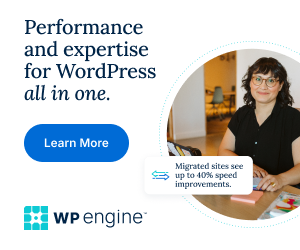Over the years I’ve developed a list of plugins that I simply can’t do without. In fact, when I spin up a new WordPress installation most of the plugins below are automatically installed for me via a script. Below is a list of the 10 plugins I’ve come to love. The list isn’t exactly set in stone as new plugins come out often, but nearly all of my sites include the ones listed here.
The List
10. Force Regenerate Thumbnails
When developing a theme from scratch, it’s often important to regenerate the thumbnail sizes used based on newly created templates or designs. Force Regenerate Thumbnails is a great tool that just works.
9. Simple Page Ordering
Simple Page Ordering by Ten Up is almost a no-brainer and it still astounds me that this isn’t a built-in feature of WordPress. To change the order of pages without this plugin, you’re forced to update the sort order manually, which is insane when you’re trying to keep track of a large set of pages. With Simple Page Ordering, you just drag and drop. The plugin takes care of the rest.
8. Options Framework
Options Framework is a plugin for developers. It lets us add in a number of options for each theme located under Appearance → Theme Options. Although I do not recommend installing this unless you have a specific need for it (since it hasn’t been updated in years), I’ve found it extremely helpful and have it built in to a few themes themselves.
7. Backup Buddy
When you put any website online, there’s a chance that it will be broken at some point, either through malicious users, bots, vulnerabilities or maybe you just updated something that you reeaaaally shouldn’t have touched. What’s the solution to this type of mayhem? Good backups!
Backup Buddy is a great tool for site owners to make sure they’re staying on top of backups for their site. Ideally this is used as a secondary backup tool, with the primary backups coming from your hosting provider or hosting control panel.
Visit https://ithemes.com/purchase/backupbuddy/ to learn more about Backup Buddy.
6. Optimize Scripts & Styles
Ok, this one is a little bit of a plug, but I try and use Optimize Scripts & Styles on all of my sites in order to optimize page load speeds by minifying the amount of data that is transferred to the client. This, along with caching, HTTP/2, gzip and other techniques ensure that each site is snappy and responsive to the user.
5. WP Super Cache
Performance has been a hot topic as of late with headless CMS websites, CMS as a service. As long as you’re not bogging your site down with a myriad of plugins, there’s absolutely no reason you can’t achieve great performance numbers with WordPress however. One of the first steps in doing that is a good caching plugin. Using a cached page, you cut out all of the code execution of content filters, database calls and other server related tasks.
4. Gravity Forms
What good is a website if your customers can’t get in touch with you? I’ve seen quite a few contact forms used in sites, from Contact Form 7 to custom solutions, but in my opinion – Gravity Forms takes the cake. It has an intuitive interface, plenty of options and a long list of add-ons if you want to connect with a payment gateway, email campaigns, CRMs and more.
Visit https://www.gravityforms.com/ to learn more about Gravity Forms.
3. Yoast SEO
Initially I built these options into the themes I created for WordPress, but after a while it was apparent that Yoast had their s*** together and covered all of the bases with their free version of Yoast SEO. Every so often Yoast does an update that conflicts with something else that may have been built out however, so always make sure to test settings on sites instead of just installing and using the built-in options.
2. iThemes Security
Having a security plugin is essential to any content management system. iTheme purchased Better WP Security a while back and renamed it to iThemes Security with all of the same great features, plus some.
1. Advanced Custom Fields
Taking the #1 spot is Advanced Custom Fields by Elliot Condon. WordPress has a lot of great features and a lot of great options already built in, but the ACF plugin has taken it one step further. ACF allows for over 30 field types to be added to Pages, making custom content creation a breeze. With the advent of Gutenberg, these types of options may end up being built into blocks for a more visual editing experience, but for now Advanced Custom Fields takes the cake.
